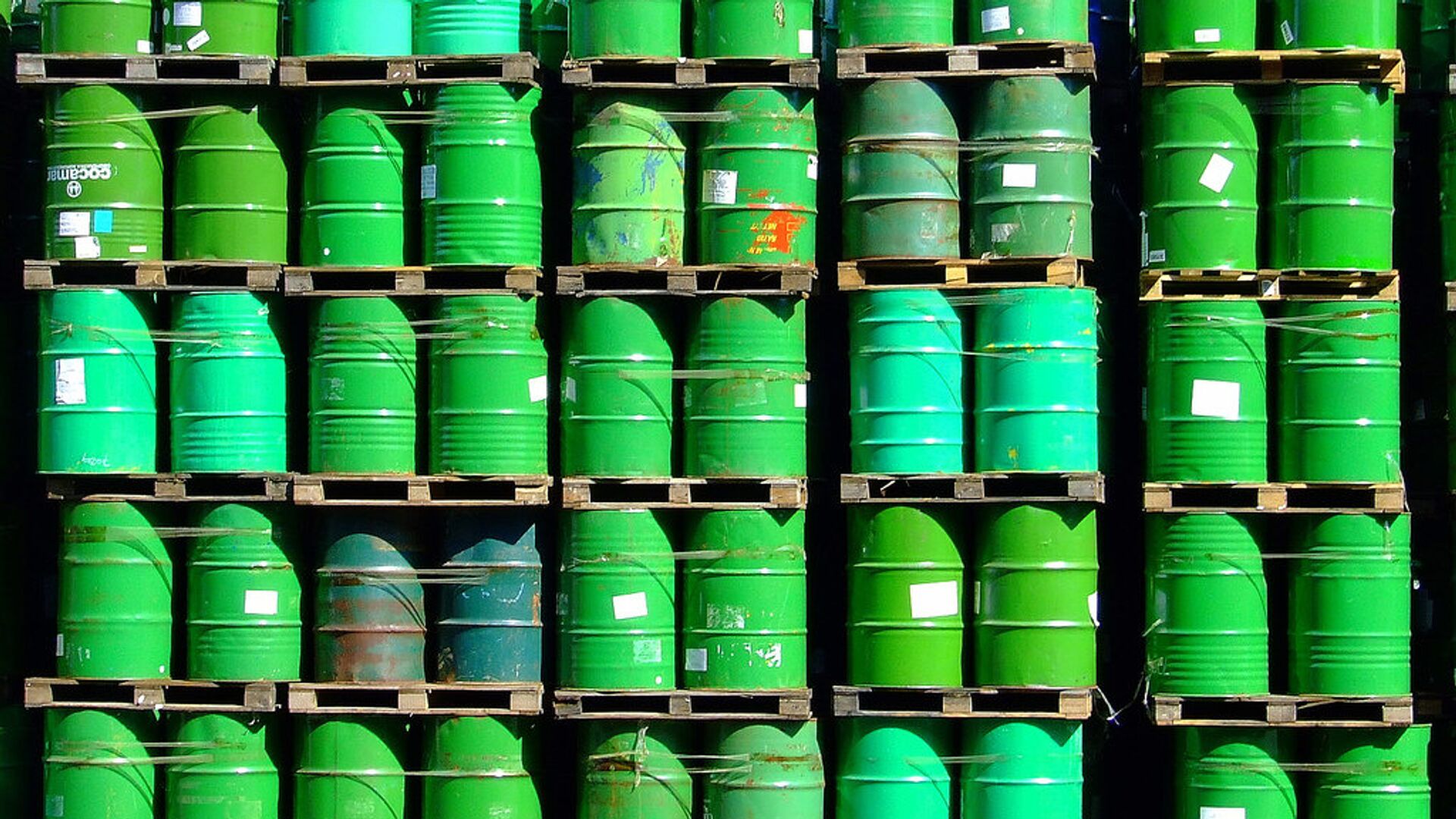https://sputnikglobe.com/20220201/geopolitics-could--get-in-way-of-stabilizing-energy-prices---us-treasury-senior-official-1092649752.html
Geopolitics Could Get in Way of Stabilising Energy Prices - Senior US Treasury Official
Geopolitics Could Get in Way of Stabilising Energy Prices - Senior US Treasury Official
Sputnik International
WASHINGTON (Sputnik) - Geopolitics could get in the way of stabilising energy prices this year, US Assistant Treasury Secretary for Economic Policy Benjamin... 01.02.2022, Sputnik International
2022-02-01T02:30+0000
2022-02-01T02:30+0000
2022-02-01T05:01+0000
us treasury department
russia
ukraine
energy prices
geopolitics
biden administration
https://cdn1.img.sputnikglobe.com/img/101958/25/1019582571_0:106:1024:682_1920x0_80_0_0_b746ccb62f9657aab701d22c0cd2a49c.jpg
"Currently, it is expected that energy prices will stabilise in 2022, but geopolitical instability could result in higher energy prices", Harris said in a statement on Monday as global oil prices increased 14% in January for the largest monthly gain since last February.Oil markets have rallied without stop over the past six weeks fuelled by geopolitical concerns over Russia-Ukraine tensions and the upcoming meeting of the OPEC+ oil producers alliance which never fails to provide its own drama to keep crude prices on the boil.The Biden administration has approved the sale of 40 million barrels from the US Strategic Petroleum Reserve to try and reduce the amount of crude oil that petroleum refiners buy directly from the open market in order to cap prices for both the raw material and fuel sold at pumps. Both crude and US prices of gasoline at the pump are at their highest since 2014.Oil prices began rising in late 2020 from output cuts by producers within OPEC+ working to revive demand decimated by the coronavirus outbreak. Although demand is now back to pre-pandemic levels, OPEC+ has been slow in adding to output, frustrating major energy consumers such as the United States, China, and India, who have seen sharp inflation in their economies from high crude prices. The Biden administration announced a coordinated oil reserve release plan with other consuming countries late last year to try and bring energy costs down.OPEC+ will hold its monthly meeting on Wednesday and is expected to announce a marginal production hike that industry analysts said the alliance may have trouble keeping to due to output constraints at under-invested oil fields.Harris acknowledged this, saying: "Members of OPEC+ have fallen behind production targets and the Energy Information Agency expects that domestic production in 2022 will trail pre-pandemic production by roughly 500,000 barrels per day".The Treasury Department official said US energy producers have also been slow to recover the production lost in 2020. The Energy Information Administration said US monthly crude output stood at 11.75 million barrels per day in November, down from a record high of 13.1 million barrels daily in January 2020, before the onset of the coronavirus pandemic.
ukraine
Sputnik International
feedback@sputniknews.com
+74956456601
MIA „Rossiya Segodnya“
2022
Sputnik International
feedback@sputniknews.com
+74956456601
MIA „Rossiya Segodnya“
News
en_EN
Sputnik International
feedback@sputniknews.com
+74956456601
MIA „Rossiya Segodnya“
Sputnik International
feedback@sputniknews.com
+74956456601
MIA „Rossiya Segodnya“
us treasury department, ukraine, energy prices, geopolitics, biden administration
us treasury department, ukraine, energy prices, geopolitics, biden administration
Geopolitics Could Get in Way of Stabilising Energy Prices - Senior US Treasury Official
02:30 GMT 01.02.2022 (Updated: 05:01 GMT 01.02.2022) WASHINGTON (Sputnik) - Geopolitics could get in the way of stabilising energy prices this year, US Assistant Treasury Secretary for Economic Policy Benjamin Harris said.
"Currently, it is expected that energy prices will stabilise in 2022, but geopolitical instability could result in higher energy prices", Harris said in a statement on Monday as global oil prices increased 14% in January for the largest monthly gain since last February.
Oil markets have rallied without stop over the past six weeks fuelled by geopolitical concerns over Russia-Ukraine tensions and the upcoming meeting of the OPEC+ oil producers alliance which never fails to provide its own drama to keep crude prices on the boil.
The Biden administration has approved the sale of 40 million barrels from the US Strategic Petroleum Reserve to try and reduce the amount of crude oil that petroleum refiners buy directly from the open market in order to cap prices for both the raw material and fuel sold at pumps. Both crude and US prices of gasoline at the pump are at their highest since 2014.
Oil prices began rising in late 2020 from output cuts by producers within OPEC+ working to revive demand decimated by the coronavirus outbreak. Although demand is now back to pre-pandemic levels, OPEC+ has been slow in adding to output, frustrating major energy consumers such as the United States, China, and India, who have seen sharp inflation in their economies from high crude prices. The Biden administration announced a coordinated oil reserve release plan with other consuming countries late last year to try and bring energy costs down.
OPEC+ will hold its monthly meeting on Wednesday and is expected to announce a marginal production hike that industry analysts said the alliance may have trouble keeping to due to output constraints at under-invested oil fields.
Harris acknowledged this, saying: "Members of OPEC+ have fallen behind production targets and the Energy Information Agency expects that domestic production in 2022 will trail pre-pandemic production by roughly 500,000 barrels per day".
The Treasury Department official said US energy producers have also been slow to recover the production lost in 2020. The Energy Information Administration said US monthly crude output stood at 11.75 million barrels per day in November, down from a record high of 13.1 million barrels daily in January 2020, before the onset of the coronavirus pandemic.


